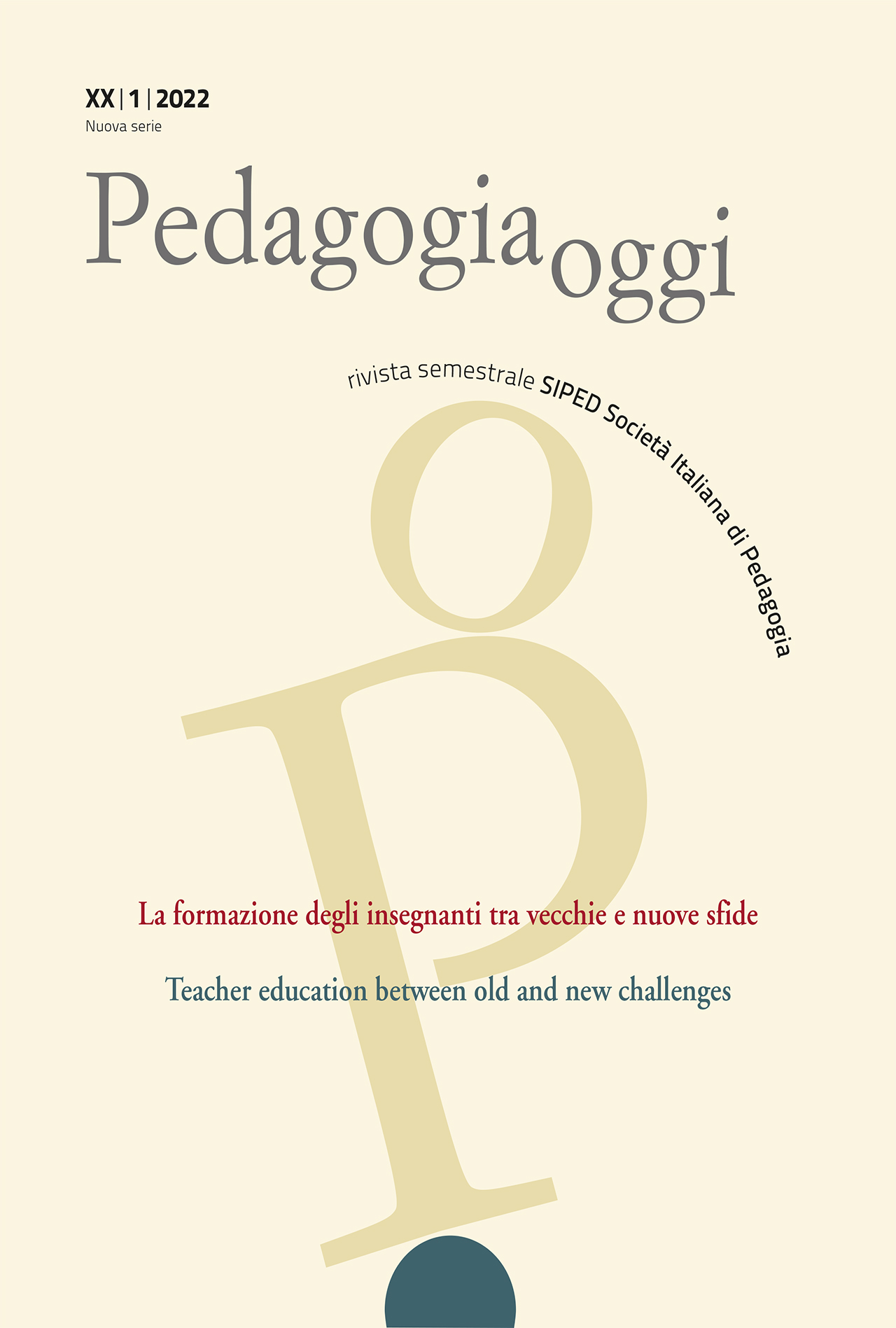Editoriale
DOI:
https://doi.org/10.7346/PO-012022-01Keywords:
EditorialeAbstract
The abolition of the SSIS (postgraduate school for secondary education) deprived secondary school teacher training of an organic model. Since its demise, there have been a succession of temporary solutions and hypotheses on reform but these have failed to create a new training model. The lack of a cohesive and organic pathway for teacher training is an anomaly within Europe, and constitutes a factor in the weakness of Italian secondary schools. On the other hand, the training of primary and early years teachers, despite featuring an organizational model that has been consolidated over time, also raises questions and critical issues concerning, for example, innovations in teaching methods, the issues/problems associated with the aims, values and ethics of future teachers, and the relationship between general and subject-specific teaching. Recently, the Minister for Education Bianchi announced the government’s willingness to discuss these issues, this willingness also being enshrined in the National Recovery and Resilience Plan: M4c1.2 ‘Reform of the teacher recruitment system and in-service training for school staff’ (Mission 4 ‘Education and Research’, Component
1 ‘Enhancement of skills and right to education’1). SIPed (Italian Society of Pedagogy) intends to contribute to the analysis and discussion of the solution to the issue of future teachers’ training at all levels. The issue of teacher training, in fact, condenses various problems, of a trade union and institutional, but also of a cultural nature, and it is mainly on these that our Society intends to focus. Indeed, an institutional solution to teacher training must be guaranteed by reflection on the cultural and professional profile of teachers, both at a general level and at the level of individual school grades. Moreover, within this reflection, adequate
space must be found for an in-depth study of the role of pedagogical knowledge and its various elements, including in relation to subject-specific knowledge and the contribution of the other human sciences.




